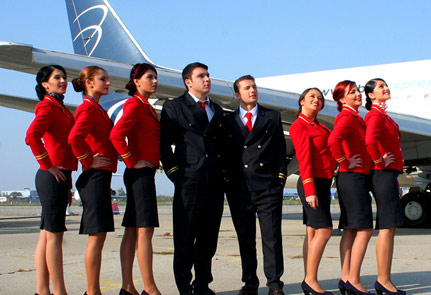What is airport management :
The main motive of the Airport Management course is to ensure smooth and problem free operations in the airport. Their responsibilities include ensuring the smooth operation of the airport, upholding security, providing the finest level of customer service, and planning cutting-edge events with other airport organisations and airlines. As an airport manager, you will collaborate as a team to provide excellent services to your patrons and enable a lasting effect. If you have ever wondered how airports and aeroplanes operate as smoothly and effectively as they do, taking a course in airport management will interest you. An emerging field of study in India is aviation management, which is a popular option for recent graduates. The aviation sector is expanding rapidly, which is increasing the need for qualified workers in this industry. Aviation management students gain knowledge and skills that prepare them for employment in this rapidly changing field. You will learn how to assess the essential components of flights, determine whether costs are enough, and anticipate and manage business challenges in the aviation sector with this course. In order to develop the plan for airports to give information on airline operational and commercial priorities, it prepares candidates who are suitable for management of airlines.
Students that excel in administration, communication, and quick decision-making are suited for airport management programmes. A career in airport management has a broad scope and can financially ensure a person’s future.
- India will cross the USA and China as the 3rd largest market for aviation till 2030.
- With INR 1,188 billion, India now has the 10th-largest market position for civil aviation.
- The airport management course deals with varieties of specific fields such as Diploma, Bachelors and Masters degree aspirants can enrol in any courses based on their educational background.
- The length of the course is almost from six months to three years. But if you opt for an online course then you may complete it earlier.
Scope in airport management :
There is a sizable market for specialists in airport management because it is one of the most beneficial and demanding sectors in the world. India’s aviation sector is the world’s third-largest domestic civil aviation market. One of India’s industries with the quickest growth over the past three years is aviation. As per expectations of the reports of IBEF, India will become 3rd largest air passenger market.
Additionally, the number of aircraft flying in this sector has increased due to the sector’s increasing demand. About 620 aircraft were being used by scheduled airline operators in India as of July 2018. By 2027, 1,100 planes are anticipated to be in operation. Government is building more airports to minimise the increasing air traffic. There were 103 airports open and operating as of March 2019. By 2040, it has been projected that this number will increase to 190–200.
Designations :
- Airport Supervisor
- Airport Manager
- Cabin crew
- Air traffic control officer
- Airline and staff manager
- Airport Operations Manager
- Cargo Manager
- Airport Traffic controller
- Aviation faculty
- Financial Analyst for airlines
Things which makes airport management different from other courses :
Pursuing airport management makes a lot of difference in one’s personality in comparison to other courses. There are many dimensions of the airport management course which makes it different.
- Career development :
You’ll probably receive a lot of management training when you start your first job in aviation management, which will help you build abilities that you can use for the rest of your career. Your career advancement won’t stop there, though. You’ll probably be among the first managers to pick up new technology skills, and you might even be able to get industry certifications. Apart from it you will be attending workshops, conferences and various events.
- International career :
The international aspect of aviation management as a vocation is another noteworthy advantage. The nature of the aviation sector implies that the skills and expertise are transferable to other locations in addition to the possibility of travel within the role itself. As a result, those in administrative positions frequently find themselves garnering interest from other organisations, which might contribute to the prevalence of opportunities to work abroad.
- Exploring new culture and people :
The social component of the job is one of the aspects of aviation management that is occasionally disregarded. You will interact with a wide range of individuals as an aviation manager, including potential clients, employees, business partners, and other aviation managers. Additionally, you may work with different cultures, which means that fresh and fascinating circumstances will constantly arise in your professional life.
- Travel and holiday benefits :
Finally, the bulk of executive positions in the aviation industry will offer generous perks for travel and vacation time. For instance, the majority of airlines will provide managers with significant flight discounts, and some may even provide a predetermined number of free flights. However, the advantages frequently go beyond this, including savings on things like hotel stays, train tickets, and car rentals, so you may be able to travel while still saving money.


